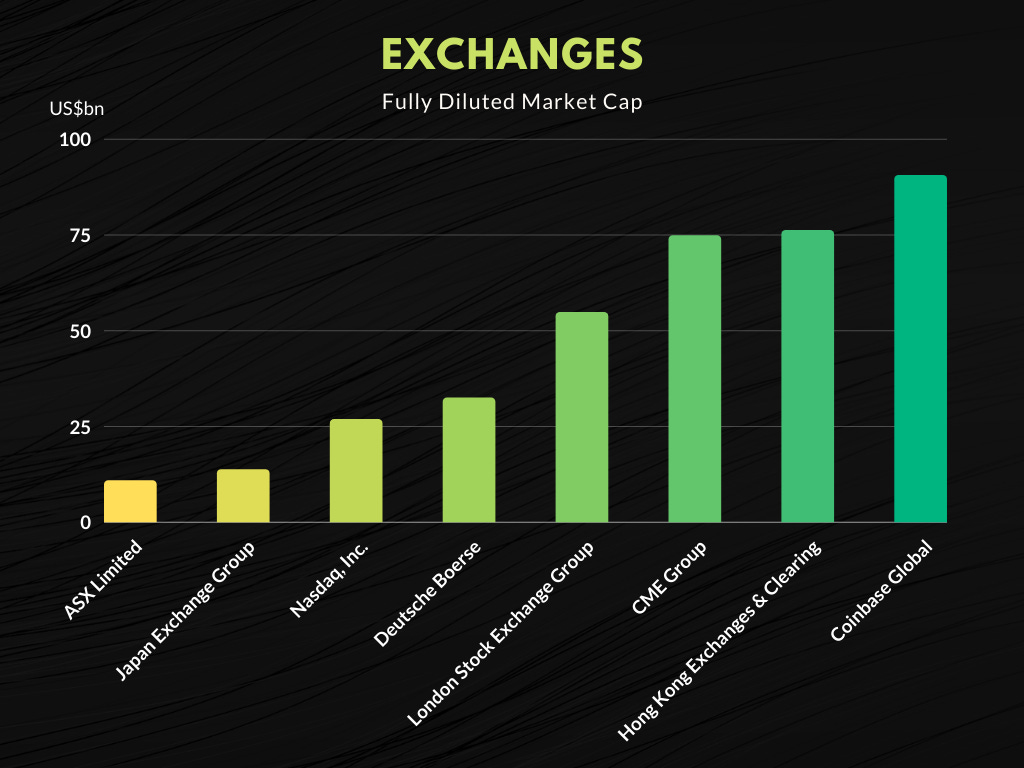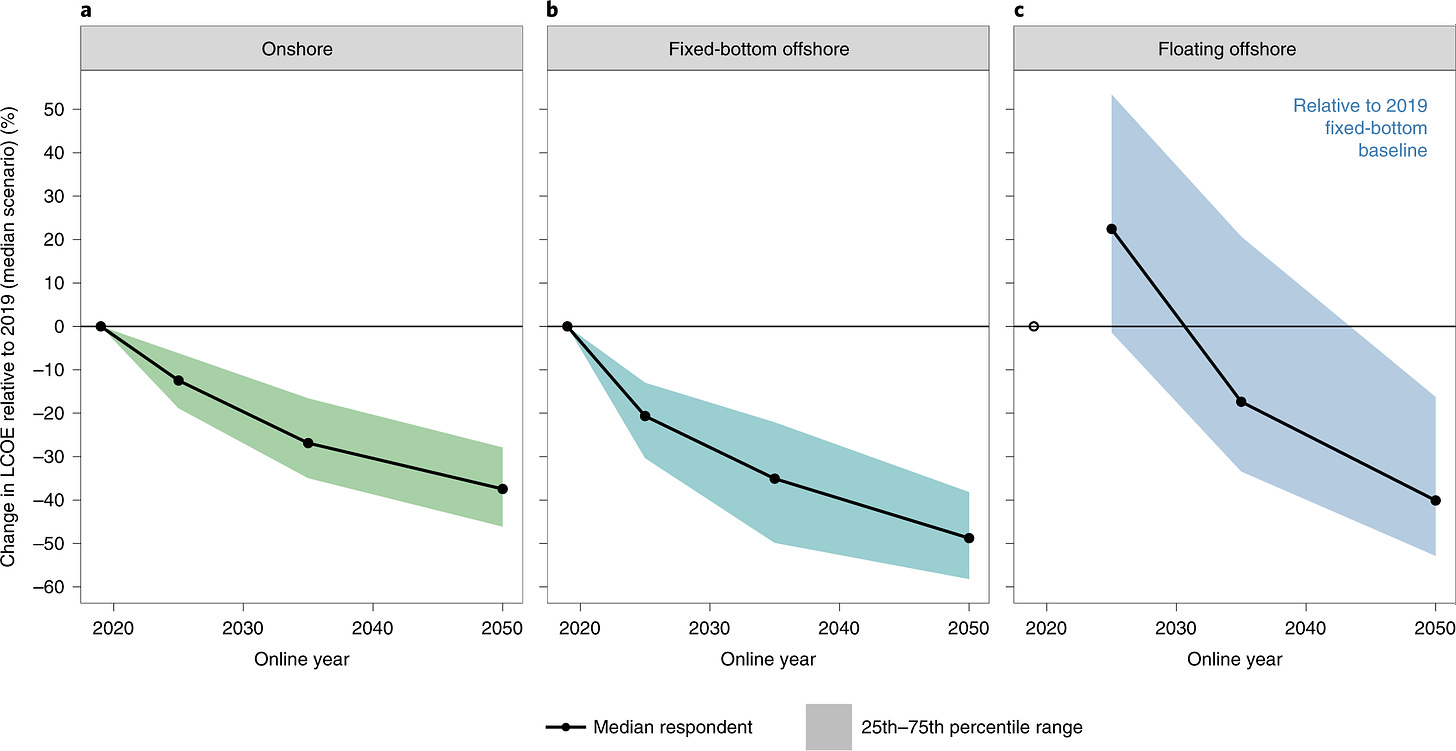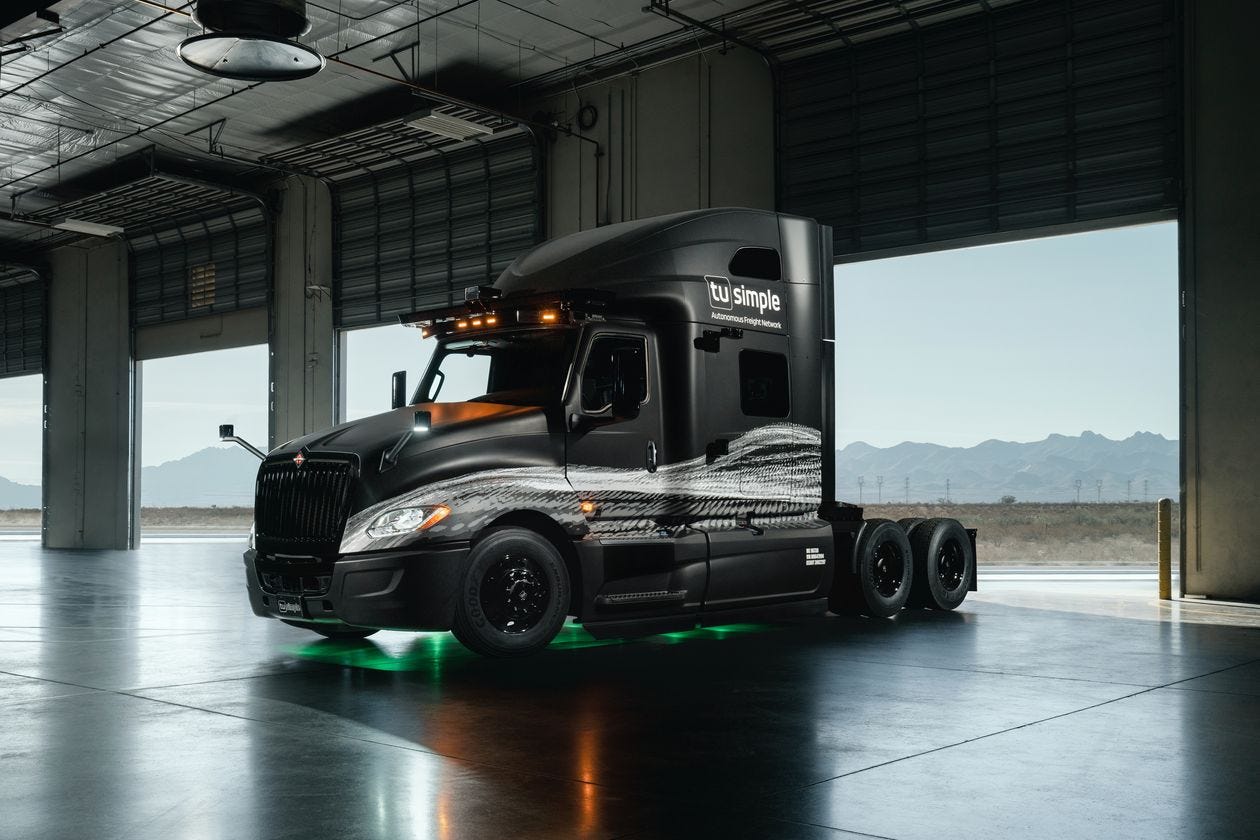Greetings!
Here’s your weekly wrap of the latest technology, innovation, and finance news.
? Cryptocurrencies
Coinbase, a cryptocurrency exchange platform, went public on Wednesday through a direct listing on the Nasdaq. The stock reached a high of $429 before closing the week at $342. At that price, the market is valuing Coinbase at $90 billion on a fully diluted basis, making it the most valuable exchange in the world.
 Big winners include early investor Garry Tan who turned a $300,000 investment in 2012 into $2.4 billion. Big losers include these HackerNews users in 2012 replying to Brian Armstrong’s post looking for a cofounder (yes, yes, hindsight is 20/20).Robinhood and Coinbase topped the Apple App Store rankings as trading increasingly becomes a source of entertainment.
Big winners include early investor Garry Tan who turned a $300,000 investment in 2012 into $2.4 billion. Big losers include these HackerNews users in 2012 replying to Brian Armstrong’s post looking for a cofounder (yes, yes, hindsight is 20/20).Robinhood and Coinbase topped the Apple App Store rankings as trading increasingly becomes a source of entertainment.
It was a big week for underlying cryptocurrencies too. Bitcoin hit an all-time highahead of the Coinbase listing (though its environmental footprint continues to be questioned), though it tumbled over the weekend.
Dogecoin spiked 400% in a week, which is a lot, but not so much in the context of its 145x return over the past year or its 1500x return over the past 5 years… which isn’t bad for a meme cryptocurrency…
The Wall Street Journal profiled “the vegan billionaire disrupting the crypto markets”, referring to Sam Bankman-Fried, who founded FTX. FTX is a cryptocurrency exchange that’s currently processing $10.7 billion in trades per day and has been pushing the boundary in offering new financial instruments like tokenized stocks.
For instance, FTX was the first major crypto exchange to offer tokenized stocks—digital coins that track the value of shares of companies like Tesla, GameStop Corp. or BioNTech SE. It also offers a popular spinoff product called pre-IPO contracts, which let overseas traders bet on the expected valuations of companies like Robinhood.
? Finance
Grab, Southeast Asia’s biggest startup, has agreed to go public via a SPAC that values the company at $40 billion.
Grab, ranked No. 16 on last year’s CNBC Disruptor 50 list, delivers an array of digital services such as transportation, food delivery, hotel bookings, online banking, mobile payments and insurance services from its app — thus the “super app” title. It operates in most of Southeast Asia, serving more than 187 million users in over 350 cities across eight countries.
? Gaming
PlayStation 5 is the fastest-selling US console ever, according to March 2021 NPD data.
Epic Games raised another $1 billion to help them pursue their long-term vision for the Metaverse, which for now just seems like a fancy way of saying “hanging out with friends online”. The raising valued Epic Games at $28.7 billion.
“We are grateful to our new and existing investors who support our vision for Epic and the Metaverse,” said Sweeney in a statement. “Their investment will help accelerate our work around building connected social experiences in Fortnite, Rocket League, and Fall Guys, while empowering game developers and creators with Unreal Engine, Epic Online Services, and the Epic Games Store.”
▶️ Streaming
38% of respondents think Netflix has the best original content of all the streaming services, according to a recent Morgan Stanley survey. Amazon Prime and Disney+ came in second and third with 12% and 7%, respectively.
Amazon is currently making a Lord of the Rings series and it’s bound to be the most expensive series ever made, costing at least $465 million for the first season. That’s serious money; by comparison, Game of Thrones cost around $100 million per season. Amazon spent $250 million for the rights to the Tolkien property in 2017 and is planning at least five seasons and possible spin-off series, so I hope it’s good! At the very least, it should help out the New Zealand economy until the 2030s.
New Zealand’s economic development minister, Stuart Nash, told RNZ that Amazon has spent a record-setting NZ$650 million on the show’s first season—though some of that money likely paid for sets, costumes, and props that will be used over the course of the show’s entire run.
…
“This will be the largest television series ever made,” Nash said.
Amazon spent $11 billion on video and music content in 2020, up from $7.8 billion in 2019.
? Batteries and Electric Vehicles
Bloomberg wrote a feature on QuantumScape, the company working on “solid-state” electric batteries for Volkswagen.
The battery leap claimed by Singh and his team promises to extend the range of electric cars by as much as 50% over today’s lithium-ion technology, while reducing charge time for a long drive to just 15 minutes.
QuantumScape stock was down 22% over the week due to Scorpion Capital releasing a short report on the company that alleges it’s a pump-and-dump SPAC scam. It makes for an interesting read.
France is giving citizens $3,000 to get rid of their car and get an ebike.
Mercedes-Benz unveiled the EQS, an electric counterpart to its S-Class sedan.
The EQS has a range of 770 kilometers or about 480 miles, according to Mercedes. If that figure is confirmed by independent testing, the EQS would dethrone the Tesla Model S Long Range Plus as the production electric car that can travel the farthest between charges. The Tesla currently occupies the No. 1 spot with a range of just over 400 miles, according to rankings by Kelley Blue Book.
?️ Renewables
According to energy research and consultancy Wood Mackenzie, the oil price could drop to $10 a barrel by 2050 if the world succeeds in meeting Paris Agreement goals,
Wood Mackenzie forecast demand for oil would start to fall from 2023 under this scenario and this decline would quickly accelerate thereafter, with year-on-year falls of around 2 million barrels a day.
Wind experts expect onshore and offshore wind costs to decline 37-49% by 2050, according to a recent paper published in Nature Energy.

⚙️ Mobility
Xpeng Motors launched a new sedan with self-driving capabilities.
Xpeng’s XPILOT is an attempt to compete with Tesla’s own ADAS system called Autopilot as well as other rivals like Nio with its Nio Pilot.
Autonomous truck developer TuSimple plans to start testing its autonomous trucks on roads this year. The company raised $1 billion through an IPO last week.
Chief Executive Cheng Lu said the company is planning to conduct a “driver-out” pilot program without anyone at the wheel in the fourth quarter on a roughly 100-mile run between Tucson and Phoenix.

? Health
Facebook AI claims they have a new AI model that can successfully predict effective drug combinations to treat cancer. Finding new ways to repurpose drugs, or to combine existing drugs, has been a powerful tool to treat complex diseases (see the paper).
Such an approach could theoretically help tackle cancer tumours, which vary from person to person and react differently to the same treatment, says Eytan Ruppin at the US National Cancer Institute.
There may be a way to regenerate lost teeth (see the paper).
Experiments with this antibody revealed that BMP signaling is essential for determining the number of teeth in mice. Moreover, a single administration was enough to generate a whole tooth. Subsequent experiments showed the same benefits in ferrets.
A new study by researchers from the QIMR Berghofer Medical Research Institute in Australia identified 509 genes that are linked to depression and anxiety (see the paper).
? Biology
Scientists have created early embryos that are part human, part monkey as part of research that could lead to growing new organs for transplantation (see the paper).
By slipping human stem cells into the embryos of other animals, we might someday grow new organs for people with faltering hearts or kidneys. In a step toward that goal, researchers have created the first embryos with a mixture of human and monkey cells. These chimeras could help scientists hone techniques for growing human tissue in species better suited for transplants, such as pigs.
? Advanced Materials
White paint can be good for cooling, and a new ultra-white paint produced by academic researchers reflects 98% of sunlight and has cooled surfaces by 4.5C below the ambient temperature. That’s pretty cool. The researchers say it could be on the market in one or two years (see the paper).
Ruan said painting a roof of 93 sq metres (1,000 sq ft) would give a cooling power of 10 kilowatts: “That’s more powerful than the central air conditioners used by most houses.”

?️ Space
Google Earth added a neat new feature: you can now see a timelapse of the last 37 years to see how the world has changed from 1984 to today. You can check out the impact of a warming planet, or the growth of a megacity like Shanghai, or how your local neighbourhood has changed over time. Check it out at https://g.co/Timelapse
SpaceX won a $2.89 billion NASA contract to develop the next spacecraft to land astronauts on the moon.
Northrop Grumman has successfully extended the life of a satellite for the second time.
The impressive feat in “in-space servicing” is another historic milestone for a company that’s trying to extend the life of satellites already in orbit and, by extension, reduce the amount of space debris floating around Earth.
CNBC looked at what Starlink means for SpaceX.
⚡ Other Snippets
The pandemic is pushing robots into retail at an unprecedented pace, according to a new survey by RetailWire and Brain Corp.
Among the top line results, 64% of retailers believe it is important to have a clear, executable, and budgeted robotics automation strategy in place in 2021, including 77% of large retailers. That’s striking considering robots in retail wasn’t really a thing as recently as the 2010s. Now, nearly half of the respondents to the survey say they will be involved with an in-store robotics project within the next 18 months.
The European Union is set to ban using AI for mass surveillance or for ranking social behaviour.
“It’s important for us at a European level to pass a very strong message and set the standards in terms of how far these technologies should be allowed to go,” Dragos Tudorache, a liberal member of the European Parliament and head of the committee on artificial intelligence, said in an interview. “Putting a regulatory framework around them is a must and it’s good that the European Commission takes this direction.”
Paul Graham wrote about how people get rich now.
In 1982 the most common source of wealth was inheritance. Of the 100 richest people, 60 inherited from an ancestor. There were 10 du Pont heirs alone. By 2020 the number of heirs had been cut in half, accounting for only 27 of the biggest 100 fortunes.
Jeff Bezos published his 2020 Letter to Shareholders, his last letter to shareholders as CEO.
In Amazon’s 1997 letter to shareholders, our first, I talked about our hope to create an “enduring franchise,” one that would reinvent what it means to serve customers by unlocking the internet’s power. I noted that Amazon had grown from having 158 employees to 614, and that we had surpassed 1.5 million customer accounts. We had just gone public at a split-adjusted stock price of $1.50 per share. I wrote that it was Day 1.
Have a great week,
Thomas




